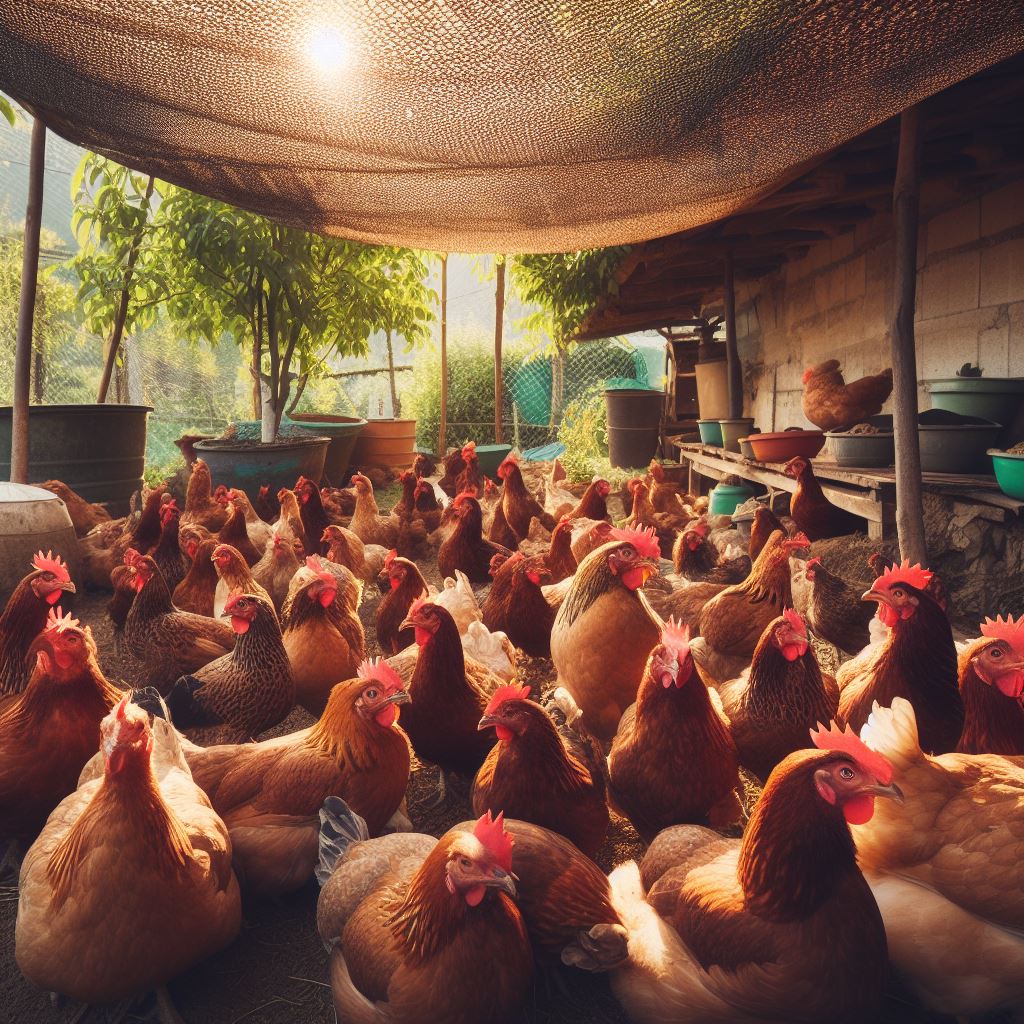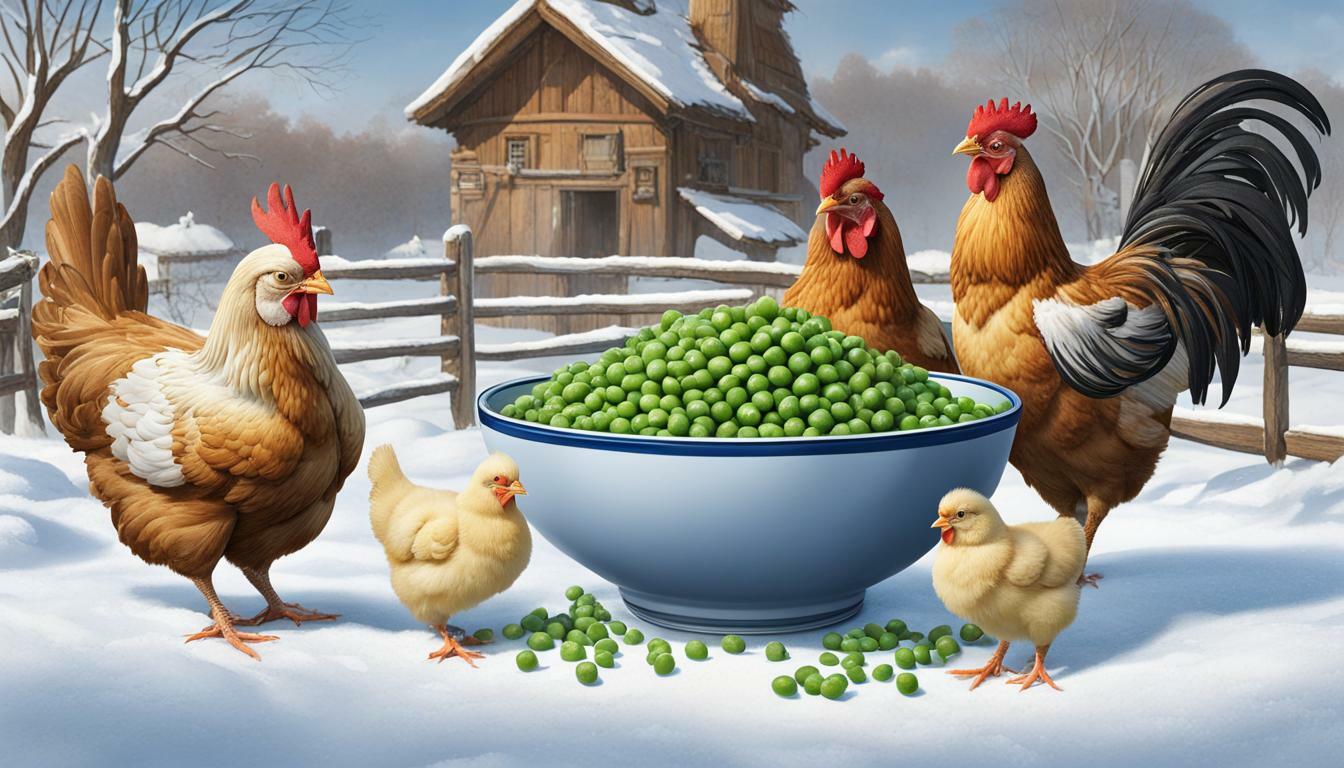Can Chickens Eat Whole Corn?
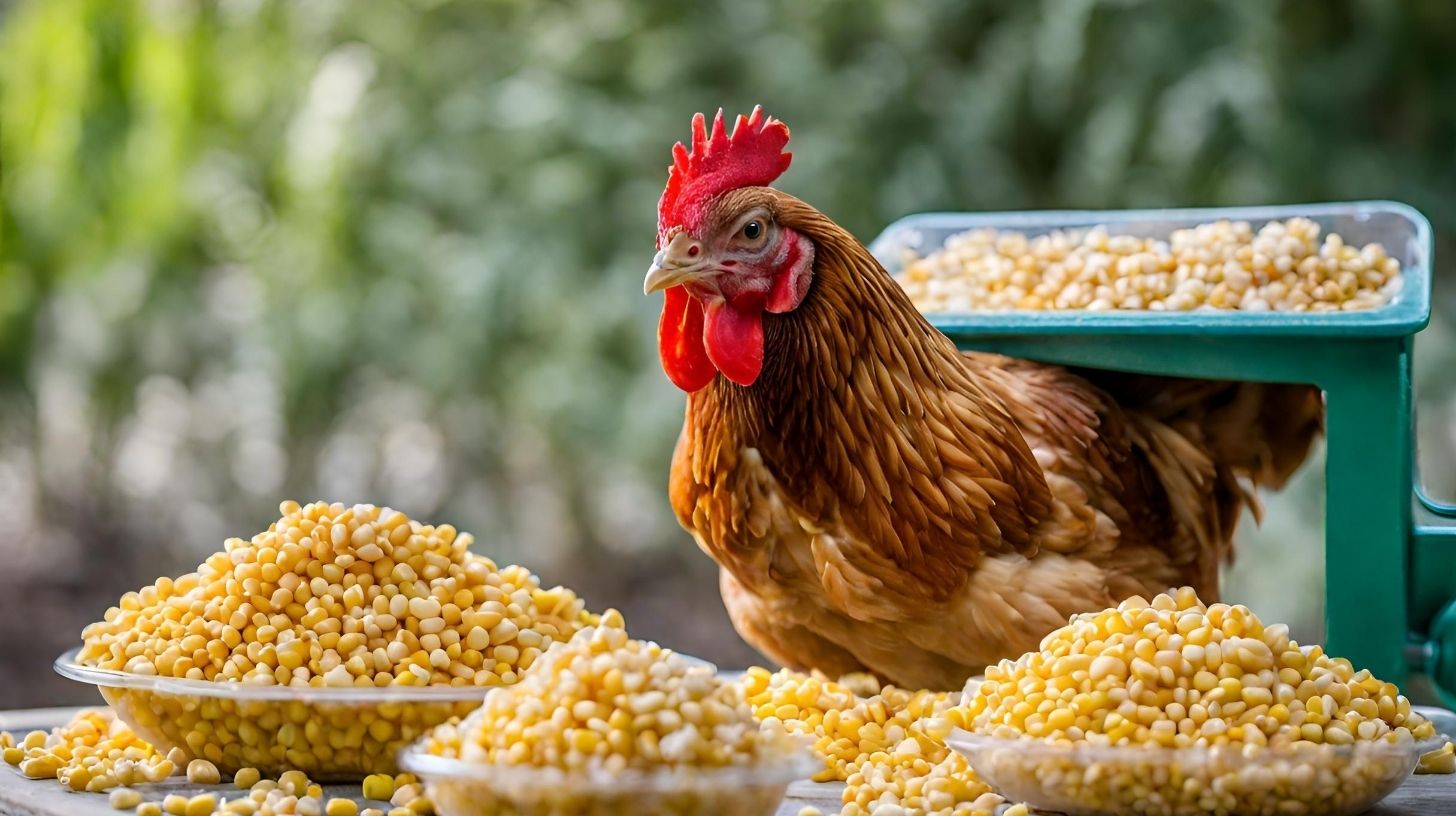
Table of content:
- How Well Can Chickens Digest Whole Corn?
- Can You Feed Chickens Whole Corn on the Cob?
- Is Corn a Good Feed Source for Chickens?
- How Much Whole Corn Can You Feed Chickens?
- Can Chickens Digest Cracked Corn?
- Do You Need to Crush Corn for Chickens?
- Can Chickens Choke on Whole Corn?
- Can You Feed Chickens Dry or Raw Corn?
- Frequently Asked Questions
- Conclusion
Corn is a common grain used in chicken feed. But there are some important things to know about feeding whole corn kernels to chickens. This comprehensive guide covers everything you need to know about feeding chickens whole corn.
Key Takeaways:
- Whole corn kernels can be fed to adult chickens in moderation, but should be avoided for chicks.
- Chickens can digest whole corn kernels, but they may regurgitate some if overfed.
- Soaking, sprouting or crushing corn can help improve digestibility.
- Only feed dried corn kernels. Raw or moldy corn can contain toxins.
- Corn is high in carbohydrates and energy but low in protein. Balance with protein sources.
- Gradually transition chickens to higher corn rations to avoid digestive upset.
How Well Can Chickens Digest Whole Corn?
Chickens are omnivores and can digest a variety of grains, including whole corn kernels. Adult chickens have strong muscular gizzards containing grit that grind up food. Enzymes in a chicken’s digestive tract also help break down and digest corn.
However, corn kernels are large, dense and have an indigestible hull that can sometimes pass through undigested. Chickens may occasionally regurgitate whole kernels if overfed. Chicks under 6 weeks old have weaker digestive systems and should not be fed whole corn.
There are some steps you can take to help chickens digest corn better:
- Soak kernels in water to soften hull and begin germination
- Sprout corn to further break down hull and increase digestibility
- Crush or grind kernels into smaller pieces
- Source corn that is free of mold, insects and toxins
Overall, in moderation, most adult chickens can successfully and safely consume whole corn kernels as part of a balanced diet. Monitor for signs of indigestion and adjust feeding as needed.
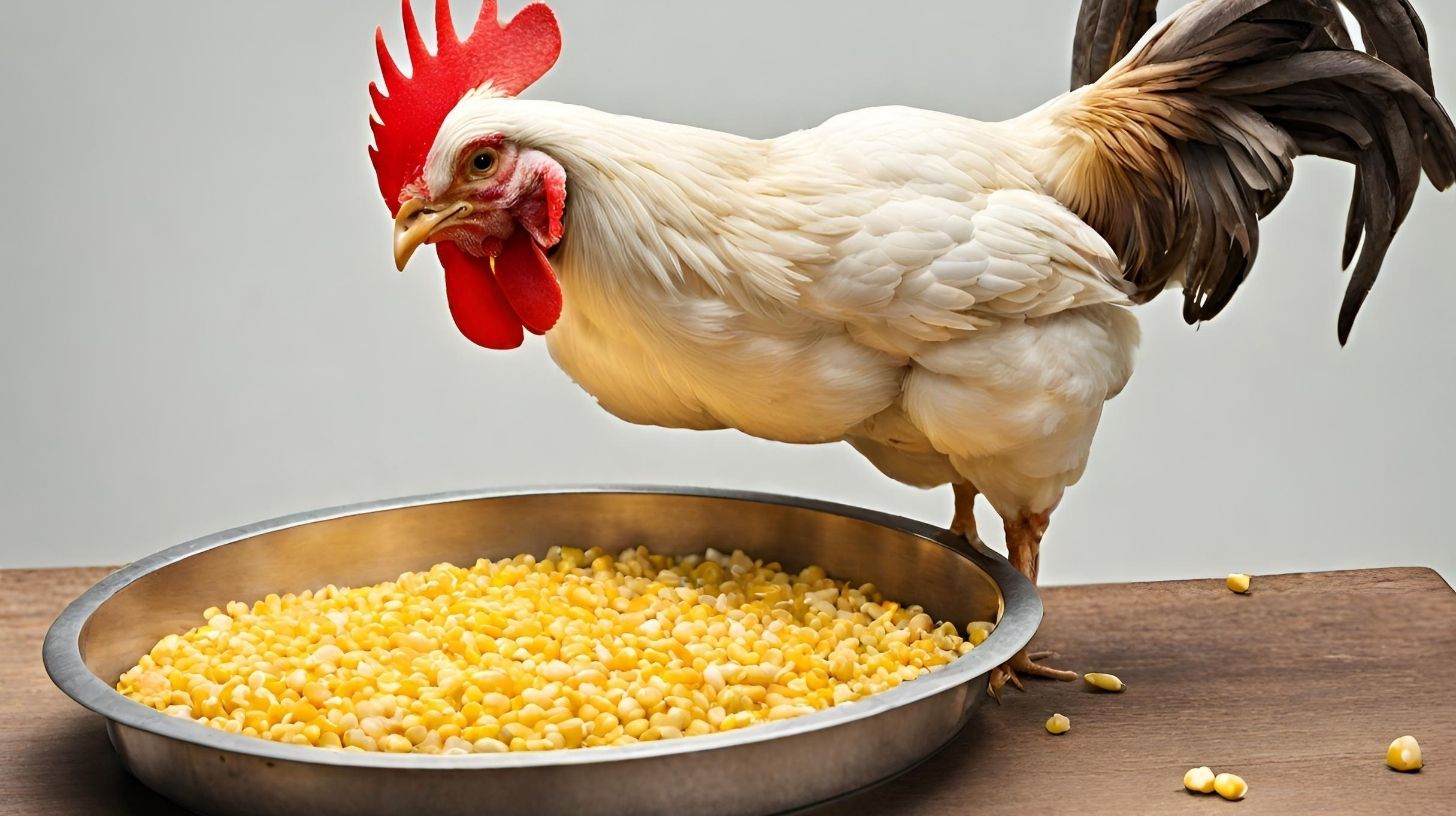 Can You Feed Chickens Whole Corn on the Cob?
Can You Feed Chickens Whole Corn on the Cob?
It’s best to avoid giving chickens whole ears of corn on the cob. Some key reasons:
- Kernels are difficult for chickens to remove and digest off the cob
- Chickens may choke on pieces of cob they swallow
- Cobs won’t break down in gizzard and can cause blockages
- Ears have limited nutritional value compared to loose kernels
The fibrous cob itself provides little nutritional value and will mostly pass through a chicken undigested. It’s safer and more efficient to feed loose dried corn kernels, which chickens can properly digest.
Is Corn a Good Feed Source for Chickens?
Here is a nutritional breakdown of feeding chickens corn:
| Nutrient | Amount | Benefits |
|---|---|---|
| Carbohydrates | Up to 70% | High energy source |
| Protein | 7-10% | Important for growth |
| Fat | 3-5% | Healthy fats for energy |
| Fiber | 2% | Promotes digestion |
| Calcium | Trace | For bone strength |
| Other vitamins & minerals | Present | Immune & enzyme function |
The main nutritional benefit of corn for chickens is as an energy source from carbohydrates. However, corn is relatively low in crucial protein and is not a complete feed itself.
Corn should be combined with high-protein feed ingredients like soybean meal, legumes, fish meal, worms, and insects. This provides a balanced diet.
When fed as part of a complete feed ration, corn can be an excellent source of energy and nutrients for chickens. But it should not exceed 50% of the total ration for laying hens or 70% for meat chickens.
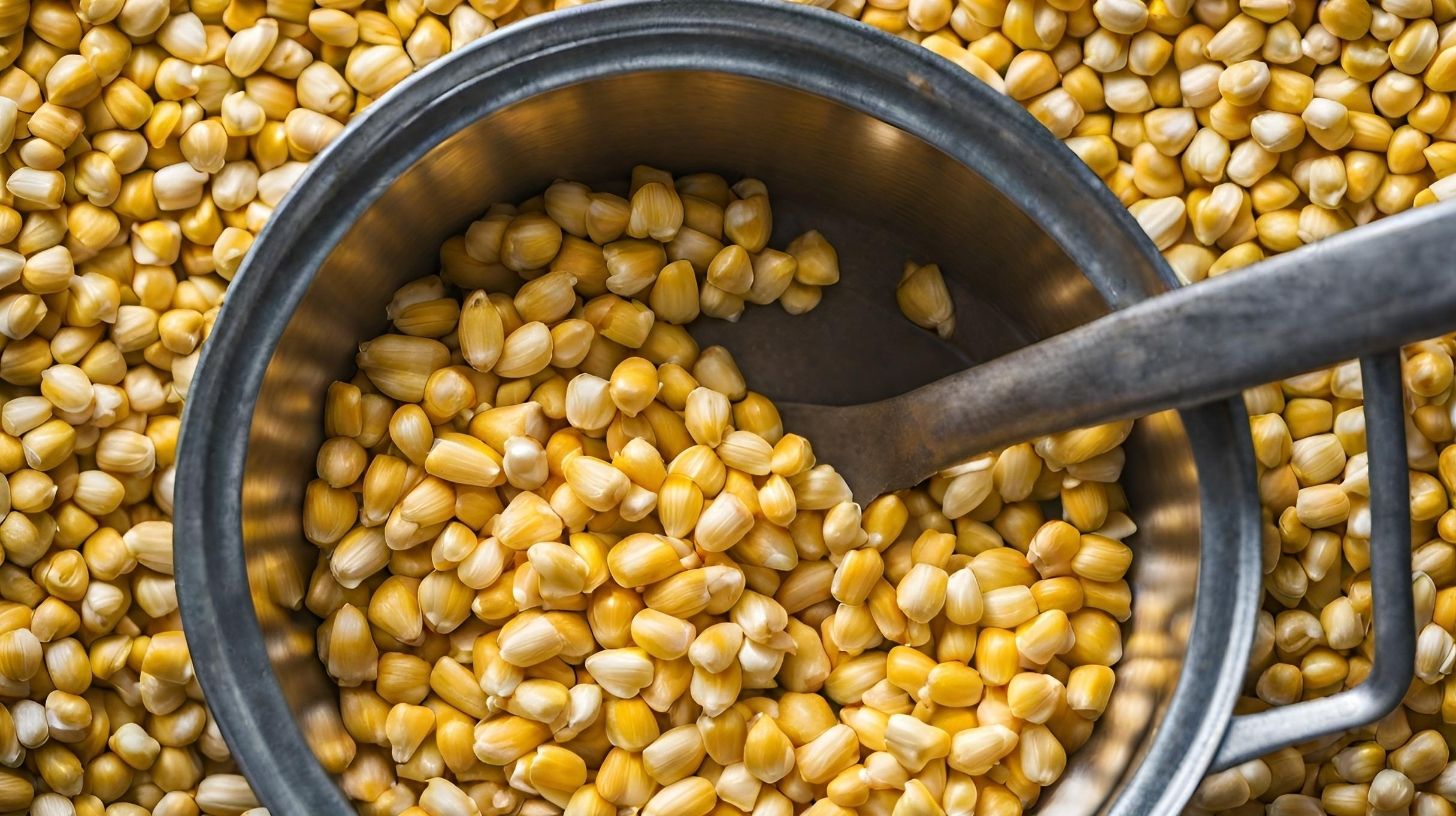 How Much Whole Corn Can You Feed Chickens?
How Much Whole Corn Can You Feed Chickens?
When introducing whole corn as a new feed source, start gradually. Too much too fast can cause digestive upset. Here are some feeding rate guidelines:
- Chicks under 6 weeks: None
- Pullets 6-18 weeks: Up to 20% of feed
- Adult hens: Up to 50% of feed
- Meat chickens: Up to 70% of feed
Monitor egg production and signs of indigestion when increasing corn feeding rates. Decrease amounts if hens go off lay or seem uncomfortable.
Free-choice feeding of whole corn alone is not recommended. Chickens tend to overeat energy-dense foods like corn given unlimited access. Controlled portions are best.
Soaking or sprouting the corn makes nutrients more bioavailable and can allow slightly higher feeding rates. But do not exceed the maximum percentages above to avoid health issues.
Can Chickens Digest Cracked Corn?
Cracked corn has the kernels broken into smaller pieces. This makes it easier for chickens to digest than whole kernels.
Benefits of cracked corn include:
- Easier for chickens to chew and swallow
- Increased surface area allows enzymes to work faster
- Gizzards can grind it better
- May reduce amount regurgitated
Cracked corn can be fed at the same inclusion rates as whole corn. But as with any feed change, start slowly and watch for any intestinal distress.
Properly processed corn meal can also be a good alternative for easier digestion. Ensure any cracked or ground corn products are fresh and free of mold.
Do You Need to Crush Corn for Chickens?
It’s not absolutely necessary to crush or grind corn fed to adult chickens. As natural foragers, chickens are adapted to swallow and digest whole grains.
However, crushing, grinding or rolling kernels can provide some benefits:
- Chicks under 6 weeks lack strong gizzard to grind kernels
- Improves digestibility for nutrients and energy
- Reduce amount of corn passed undigested
- Allows feeding higher rations of corn safely
- Combining with other feed ingredients is easier
If you don’t crush the corn, be conservative with feeding rates. Around 30-40% inclusion for hens is a safe amount if not crushing. Watch for signs of digestive issues and decrease amounts if needed.
With proper introduction, most adult chickens should do fine with moderate amounts of whole kernels. But crushing does provide advantages.
Can Chickens Choke on Whole Corn?
It’s possible but uncommon for chickens to choke on whole corn kernels. Some things that increase the risk include:
- Attempting to swallow kernels too large for their throats
- Eating corn too quickly without proper chewing
- Very young chicks with small throats
To reduce the chance of choking, follow proper feeding guidelines:
- Avoid corn cobs which can obstruct throats
- Crush very large kernels
- Use size-appropriate feed for chicks
- Prevent aggressive hen behavior at feeder
- Use round feeders rather than troughs
Monitor your flock during feeding times. Choking is most common with newly introduced foods. Remove any choking hazards in the run.
Can You Feed Chickens Dry or Raw Corn?
It’s important to only feed chickens clean, dry corn free of mold, fungi, insects or contaminants. Here’s why:
- Raw corn can contain dangerous mycotoxins from spoilage
- Wet corn prone to mold, bacteria and fungal growth
- Insects in corn can carry pathogens harmful to chickens
- Foreign matter like stones can choke chickens or injure their crops and gizzards
Never feed chickens moldy or rotten corn kernels. Heat processing (roasting, popping) and drying corn helps destroy dangerous organisms.
Store corn in clean, dry containers safe from rodents and water. Discard any corn that smells musty, is discolored or shows signs of insects. Provide fresh corn as part of your chickens’ balanced diet.
Frequently Asked Questions
Should you soak corn before feeding chickens?
Soaking softens the kernel hull and begins the germination process, releasing nutrients and improving digestion. But it’s not required.
Do you have to cook corn for chickens to eat it?
No. Chickens can eat dried, raw corn without cooking. However, heat processing can help destroy potential mold and toxins.
Is corn bad for chickens?
In moderation, corn can be very healthy for chickens as an energy source. But too much corn can lead to obesity and nutritional deficiencies. It should be balanced with protein feeds.
How long does it take chickens to digest corn?
Whole corn can take 12-24 hours to be fully digested by chickens. Cracked or ground corn digests more rapidly, within just a few hours.
Can chickens eat corn everyday?
Adult chickens can safely eat small amounts of corn daily as part of a balanced diet. But corn should not be the sole feed or make up over 50% of the diet long term.
Conclusion
In conclusion, whole corn can be a healthy feed ingredient for adult chickens when fed properly. The high carbohydrate content provides lots of energy, but corn is low in protein so must be balanced accordingly.
To optimize digestion and prevent issues, start with small amounts and transition slowly to higher rations. Soaking, crushing or grinding the kernels can also improve digestibility if needed. Avoid moldy, wet or insect-infested corn which can make chickens sick.
Following these tips and guidelines, moderate whole corn feeding can be safe for your flock and provide energy and variety in their diet. Adjust amounts based on your chickens’ needs and watch for any signs of indigestion.
Welcome. I’m Adreena Shanum, the proud owner of this website, and I am incredibly passionate about animals, especially poultry. I founded adreenapets.com as a labor of love, stemming from my desire to share my knowledge and experiences with poultry enthusiasts worldwide.


